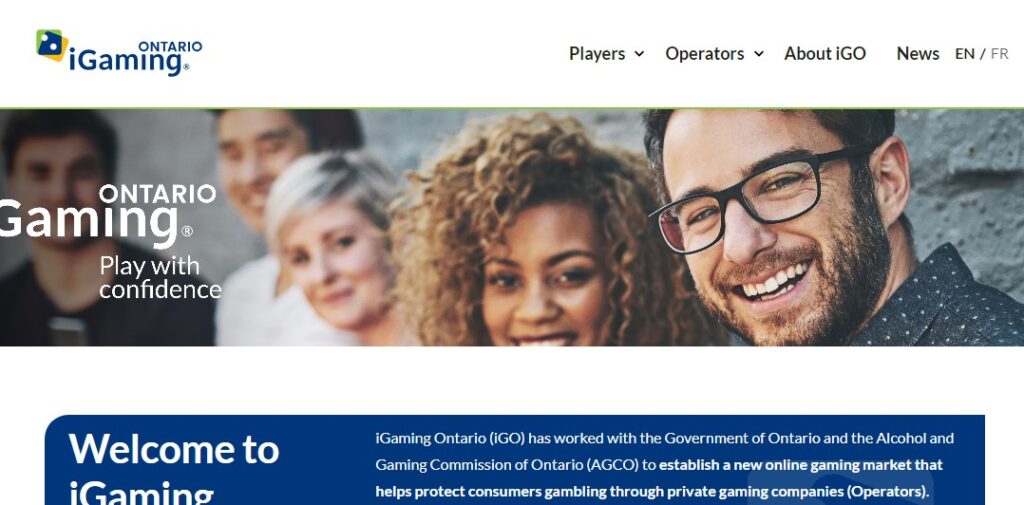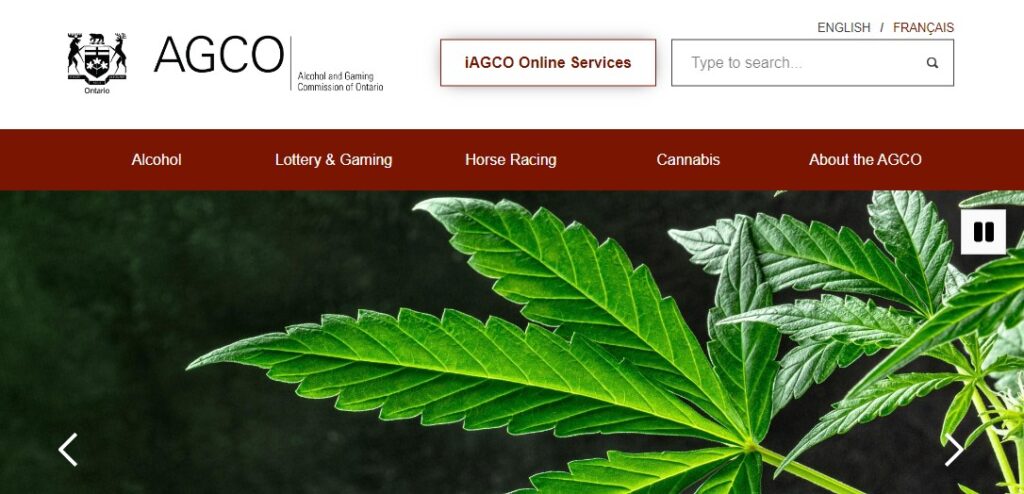
Prior to 1892, gambling in Canada was unregulated. However, the introduction of the Criminal Code of Canada that year outlawed all gambling activities, except horse wagering and games at small midways or carnivals. In 1969, the Criminal Code was amended to allow low-stakes gambling for charitable purposes. This amendment led to the passage of Bill C-150, enabling provincial and federal governments to utilize lotteries for financing specific events, such as the 1976 Summer Olympic Games in Montreal.
In 1985, a further amendment granted provinces the exclusive authority to operate and manage lotteries and lottery schemes, including games run via computers, video devices, or slot machines. This development allowed provincial lotteries to offer parlay markets for popular North American sports events, with moneyline wagering as the sole option and a requirement for at least three legs in each parlay.
To counter illegal bookmaking, provincial governments introduced parlay betting products like PROLINE and other similar sports lottery products at retail locations in 1992. As the World Wide Web gained traction in the early 1990s, gray market operators from locations such as Costa Rica, Gibraltar, and the Isle of Man began accepting bets from Canadian customers, providing a range of markets and higher bet limits.
Several bills were proposed to legalize single-event sports betting and tax domestic revenue. Although Bill C-290 was approved in the House of Commons in 2012, it was rejected in the Senate in 2015, and a second attempt in 2016 also proved unsuccessful. Nevertheless, online sports wagering continued to expand in Canada, with an estimated $14 billion (CAD) gambled illegally each year.
In January 2022, iGaming Ontario (iGO), a subsidiary of the Alcohol and Gaming Commission of Ontario (AGCO), declared that starting April 4, 2022, private operators registered with the AGCO and having signed agreements with iGO would be permitted to provide their gaming services in Ontario under the new Ontario sports betting regulations.
This marked the conclusion of a process that began in April 2019 when the provincial government revealed intentions to dismantle the Ontario Lottery and Gaming Corporation’s igaming monopoly, paving the way for private operators. The process advanced in November 2020, with related legislation proposed and ultimately passed in 2021.
To partake in Ontario’s igaming market as a provincial agent, operators must first secure registration with the AGCO, Ontario’s gaming regulator, and subsequently establish an operating agreement with iGO.
Single-game Betting
Single-game betting, also known as single-event or match betting, allows bettors to place wagers on the outcome of a single sports event, rather than a combination or parlay bet. Historically, single-game betting was prohibited in Canada, with bettors required to make parlay bets on multiple games.
However, on August 27, 2021, the ban on single-game betting was lifted across Canada, including Ontario, as a result of Bill C-218, the Safe and Regulated Sports Betting Act, which received Royal Assent on June 29, 2021. This change, under the updated Ontario online gambling laws, aimed to bring sports betting into a regulated framework, protect consumers, and generate revenue for the government. It also aimed to undermine the influence of illegal bookmakers and offshore gambling websites.
With the ban lifted, bettors in Ontario can now legally engage in single-game betting, providing them with more options and a safer, regulated environment for placing their wagers. The introduction of single-game betting has also opened up new opportunities for the gaming industry and attracted private operators to enter the market.
- Single-game betting: This betting form concentrates on a single event or game and includes different markets such as moneyline, point spread, or over/under. To be successful, the bet’s criteria must be fulfilled within that specific game.
- Parlay betting: Often referred to as a multiple or accumulator, parlay bets merge two or more wagers into one bet. To achieve a win, all individual bets must be accurate. Although a single incorrect bet leads to a loss, the potential payout is elevated due to the combined odds of each bet, yielding a more significant return for triumphant parlays.
Is Sports Betting Legal in Ontario?
So, is sports betting legal in Ontario? Yes, it is. The province has made remarkable progress in recent years to establish a regulated and secure environment for sports betting enthusiasts, adapting to changes in Ontario online gambling laws. The federal ban on single-game sports betting in Canada was lifted on August 27, 2021, enabled provinces to legalize and regulate sports betting.
Ontario was the first province to capitalize on the new legislation, launching its iGaming market on April 4, 2022. The formation of iGaming Ontario, in collaboration with the Alcohol and Gaming Commission of Ontario (AGCO), has empowered the province to supervise and regulate online sports betting operators, ensuring compliance with strict standards, user protection, and fairness.
Before the legalization of single-game sports betting, Ontario residents were limited to parlay betting through provincially-run services like Proline or the Ontario Lottery and Gaming Corporation (OLG). However, under the updated Ontario online gambling regulation, single-game betting is now legal and accessible via multiple licensed online sportsbooks.
The legalization of sports betting in Ontario has fostered a safer and more regulated betting environment for consumers. By issuing licenses to betting operators, iGaming Ontario guarantees that these sites fulfill stringent security, fairness, and infrastructure requirements, instilling greater confidence in bettors regarding the safety and legitimacy of the sportsbooks they utilize.
In conclusion, sports betting is legal in Ontario, owing to recent legislative changes and the establishment of iGaming Ontario and the AGCO. These regulatory bodies have revolutionized the sports betting landscape, allowing residents to participate in single-game betting and ensuring a secure and fair experience for all.
iGaming Ontario

Founded in July 2021 as a subsidiary corporation of the AGCO, iGaming Ontario is in charge of conducting and managing igaming provided through private operators.
The organization is responsible for conducting and managing internet gaming offerings via private gaming operators in Ontario, in compliance with the Criminal Code (Canada), the Gaming Control Act, and the Registrar’s Standards for Internet Gaming. iGaming Ontario fulfills these duties through the creation, execution, and oversight of operating agreements with private igaming operators, as well as necessary policies, programs, and procedures that balance essential government objectives like consumer protection, red tape reduction, and revenue generation.
Role in Ontario’s Regulated iGaming Market:
AGCO’s role in Ontario’s regulated igaming market involves administering the Gaming Control Act, 1992 (GCA) and Regulation 78/12. It also establishes and maintains standards and requirements (the Registrar’s Standards for Internet Gaming) applicable to OLG regarding its internet gaming site, iGaming Ontario concerning its activities, and all registered igaming operators and suppliers.
iGaming Ontario’s key activities include executing operating agreements with private igaming operators once they are registered by the AGCO and overseeing contractual obligations for providing their services in Ontario’s regulated igaming scheme. The organization also implements and oversees the reconciliation of igaming revenues on behalf of the province, provides market insights, facilitates operator integration into the new market, and implements responsible gambling requirements for operators.
Additionally, iGaming Ontario develops and supervises its anti-money laundering program and policies, as well as establishes a dispute resolution process to address customer concerns.
Alcohol and Gaming Commission of Ontario (AGCO)

The Ontario provincial regulatory agency was established in February 1998 and serves as the regulator of Ontario’s regulated igaming market.
The AGCO is responsible for establishing and upholding standards and requirements (the Registrar’s Standards for Internet Gaming) applicable to OLG regarding its internet gaming site, iGaming Ontario in relation to its activities, and all registered igaming operators and suppliers.
iGaming Ontario’s key activities include executing operating agreements with private igaming operators after registration by the AGCO, overseeing contractual obligations for service provision in Ontario’s regulated igaming scheme, implementing and supervising igaming revenue reconciliation for the province, providing market insights, facilitating operator integration into the new market, implementing responsible gambling requirements for operators, developing and overseeing iGaming Ontario’s anti-money laundering program and policies, and establishing a dispute resolution process to address customer concerns.
Key Activities:
AGCO’s key activities involve developing regulatory standards (Registrar’s Standards for Internet Gaming), determining eligibility and registering igaming operators and gaming-related suppliers to ensure sector integrity, registering independent testing labs (ITLs) to test and certify igaming technology meeting the required Registrar’s Standards for Internet Gaming, monitoring igaming operators, suppliers, and digital game offerings for compliance with regulatory obligations, including the Registrar’s Standards for Internet Gaming.
In cases where compliance concerns arise, the AGCO works to bring operators and suppliers back into compliance through progressive sanctions, including warnings, suspensions, monetary penalties, and, in severe cases, revocations. The agency also collaborates with igaming operators and suppliers to increase their understanding of regulatory obligations and improve overall compliance, as well as addressing regulatory complaints and inquiries related to game integrity and fairness, misuse of private information, responsible gambling violations, and money laundering.
Betting Laws and User Protection

Betting laws serve to regulate the industry and protect users from potential risks and unethical practices. In this section, we will discuss how Ontario’s betting laws safeguard users and promote a secure and responsible betting environment.
User Protection Measures:
- Active Betting Market Monitoring: Betting laws necessitate that operators actively monitor betting markets for suspicious activities, maintaining the integrity of the betting process and protecting users from potential fraud or manipulation.
- Independent Integrity Monitors (IIMs): Operators must engage AGCO-registered IIMs, responsible for receiving, evaluating, and distributing unusual or suspicious betting alerts in compliance with the Registrar’s Standards. Learn more about AGCO-registered IIMs here.
- Insider Betting Prohibition: Betting laws forbid insiders, such as coaches, athletes, and referees, from betting on specific events, preventing potential conflicts of interest and ensuring fairness in sporting events.
- Acceptable Betting Criteria: Betting laws require sports and event offerings to meet acceptable betting criteria and not be objectionable, ensuring appropriate betting opportunities that don’t promote harmful or unethical activities.
Ontario’s betting laws protect users by maintaining the betting process’s integrity and fostering responsible gambling practices. Compliance with these regulations helps operators create a safe and enjoyable betting environment for users.
Guaranteeing a Safe and Secure Experience
While online sports betting legality is essential, users should consider other factors when choosing a betting platform.
- Security: Websites should use advanced encryption technology, like SSL certificates, to protect user data and transactions from cyber threats.
- Secure Deposit and Withdrawal Methods: Betting sites should offer various secure, reputable payment methods, including credit cards, e-wallets, and bank transfers.
- Responsible Gaming Measures: Platforms should implement responsible gambling policies and tools, such as self-exclusion options, deposit limits, and time-outs.
- Licensing and Regulation: Sites should be licensed and regulated by a reputable gambling authority, like the AGCO in Ontario.
- Customer Service: A dependable customer support team should be available through multiple channels, including live chat, email, and phone.
- Transparency: Betting sites should clearly display terms and conditions, privacy policies, and promotional information.
- Fair Play and Game Integrity: Sites should use random number generators (RNGs) for fair casino gameplay and implement measures to prevent match-fixing or cheating in sports betting.
- Independent Auditing and Testing: Platforms should undergo regular audits and testing by independent third-party organizations to verify fairness and integrity.
- User Reviews and Reputation: Consider the experiences and opinions of other players through reviews and research on the site’s reputation in the online gambling community.
- Clear and Accessible Information: Betting sites should provide comprehensible information about odds, betting markets, and bet placement, assisting users in making informed decisions.
Look for the iGaming Ontario logo when selecting a platform, indicating that the site is operated and supervised by iGaming Ontario, ensuring player protection and adherence to Ontario’s strict game integrity and responsible gambling standards.
Eligibility Criteria for Sports Betting in Ontario
Understanding the requirements and restrictions for both license holders and bettors can help you make informed decisions about your sports betting experience.
Operator Eligibility: Meeting the Licensing Standards
- To obtain a license, sportsbooks must meet the regulatory standards established by iGaming and the Alcohol and Gaming Commission of Ontario. These standards include having their technology tested and certified by a third-party organization to ensure fairness and reliability. Additionally, they must submit comprehensive financial information to demonstrate financial stability and integrity.
- Operators are also required to implement control activities to maintain secure operations and protect user data. Furthermore, they must ensure adherence to responsible gambling practices, including protecting vulnerable individuals and promoting safe betting habits. The licensing process is rigorous and ongoing, designed to maintain high industry standards and consumer confidence.
User Eligibility: Who Can Place Bets?
- Specific criteria must be met for users to place bets in Ontario. To be eligible, individuals must reside in Ontario and have a registered address within the province. They must also be physically present in Ontario while placing bets. Some websites may require the use of a geo-tracker to confirm the user’s location. Moreover, individuals must be at least 19 years old, which is the legal gambling age in Ontario.
- By meeting these requirements, bettors can enjoy the diverse range of legal sports betting options available in the province.
Why Should I Bet on Regulated Sites?
Choosing to bet on regulated sites is essential for a safe and enjoyable sports betting experience. Regulated platforms adhere to strict industry standards and legal requirements, ensuring that players are protected and have access to fair play. In this section, we will explore the various reasons why betting on regulated sites is crucial.
- Enhanced Player Protection: Regulated sites prioritize user safety by implementing strict security measures, such as advanced encryption technologies, to protect user data and financial transactions. Additionally, they offer secure and reputable deposit and withdrawal options, ensuring the safety of users’ funds.
- Fair Play and Game Integrity: Regulated platforms use random number generators (RNGs) for casino games and employ stringent measures to prevent match-fixing or other forms of cheating in sports betting. They are also regularly audited and tested by independent third-party organizations to verify the fairness and integrity of their games and betting offerings.
- Responsible Gaming Measures: Regulated sites are committed to promoting responsible gambling practices. They provide tools and resources to help users maintain control over their betting behavior, such as self-exclusion options, deposit limits, and time-outs.
- Legal Compliance and Licensing: Betting on regulated platforms ensures that you are participating in a legal and compliant operation. Licensed sites are overseen by reputable gambling authorities, like the AGCO in Ontario, which ensures that they follow local laws and industry standards.
- Reliable Customer Service: Regulated sites typically offer reliable customer support through multiple channels, such as live chat, email, and phone. This ensures that users can receive prompt assistance with any questions or concerns that may arise.
- Transparent and Accessible Information: Regulated platforms are transparent in their operations, displaying clear terms and conditions, privacy policies, and relevant information regarding wagering requirements. They also provide users with easy-to-understand information about odds, betting markets, and how to place bets, enabling users to make informed decisions.
- Trust and Reputation: When betting on regulated sites, users can have confidence in the platform’s legitimacy and trustworthiness. These sites have earned their reputation by adhering to strict regulations, providing high-quality services, and maintaining a strong commitment to user satisfaction.
| Regulated Sites | Non-Regulated Sites |
| Enhanced player protection | Limited or no player protection |
| Fair play and game integrity | Risk of unfair games and practices |
| Responsible gaming measures | Lack of responsible gaming resources |
| Legal compliance and licensing | Potential legal risks and non-compliance |
| Reliable customer service | Inconsistent or unreliable customer support |
| Transparent and accessible information | Limited transparency and unclear information |
| Trust and reputation | Questionable trustworthiness and reputation |
| Audited and tested by independent organizations | No third-party audits or testing |
| Secure deposit and withdrawal methods | Potentially unsafe payment methods |
| Compliance with local laws and industry standards | Possible violation of laws and industry standards |
| Greater user satisfaction | Potential for user dissatisfaction and frustration |
Betting on regulated sites offers a secure, fair, and enjoyable sports betting experience. By choosing a licensed and regulated platform, you can ensure that your bets are placed within a legal and responsible framework, protecting your interests and enhancing your overall betting experience.
How Do I Know If I’m Playing at a Regulated Site?
To determine if you’re betting on a regulated site, follow these steps:
- Look for the licensing information: Regulated sites will prominently display their licensing and regulatory information, usually at the bottom of their homepage. In Ontario, the site should be licensed and regulated by the Alcohol and Gaming Commission of Ontario (AGCO).
- Check for the iGaming Ontario logo: If you’re in Ontario, keep an eye out for the iGaming Ontario logo on the betting platform. This logo signifies that the site is operated and overseen by iGaming Ontario, ensuring adherence to the province’s stringent standards for game integrity and responsible gambling.
- Verify the site’s security measures: Reputable sites use advanced encryption technologies, such as SSL certificates, to protect user data and transactions. Look for the padlock symbol in the address bar of your browser, indicating a secure connection.
- Review responsible gaming measures: Regulated sites are committed to promoting responsible gambling practices and should provide tools and resources, such as self-exclusion options, deposit limits, and time-outs, to help users maintain control over their betting behavior.
- Examine the site’s transparency: Regulated platforms will clearly display their terms and conditions, privacy policy, and other relevant information.
- Research the site’s reputation: Look for user reviews, testimonials, and ratings to evaluate the experiences and opinions of other players. A regulated site should have a solid reputation within the online gambling community.
By considering these factors, you can ensure that you’re betting on a regulated and reputable platform that prioritizes user protection and adheres to industry standards.
Where to Bet?
Explore the top online sportsbooks in Ontario, each with unique features, advantages, and drawbacks. Understand their offerings to find the best fit for your preferences and betting strategies.
We’ve outlined each sportsbook, emphasizing their user-friendly platforms, sports coverage, odds, and additional features. Discover the ideal sportsbook for your needs and start an exciting betting journey.
BetMGM

A partnership between MGM Resorts International and Entain, BetMGM offers a user-friendly platform, a wide range of sports, markets and competitive odds. Key features include cash-out options, bet builders, and in-play betting. Limited availability and wagering requirements may be drawbacks. BetMGM is licensed and regulated by the AGCO under Regulation 78/12 of the GCA.
Bet99

An emerging sportsbook, Bet99 provides an intuitive platform, diverse sports, and attractive odds. Features include cash-out options, in-play betting, and customizable bets. As a newer brand, it may lack recognition, and some users may find wagering requirements a drawback. Bet99 is licensed and regulated by the AGCO under registration number OPIG1235604.
BetVictor

A reputable sportsbook, BetVictor offers a user-friendly platform, comprehensive sports coverage, and appealing odds. It includes cash-out options, bet builders, and virtual sports betting. Their geolocation restrictions may be drawbacks. BetVictor is licensed and regulated by the AGCO and iGaming Ontario under licence number OPIG1239051.
BetRivers

Popular for wide sports coverage, competitive odds, and a user-friendly platform, BetRivers offers live betting, cash-out options, bet builders, and a loyalty program. Limited live streaming, wagering requirements, and geolocation restrictions may deter some users. BetRivers is licensed by the AGCO to provide Internet Gaming & Internet Sports Betting services in Ontario.
Bet365

Globally recognized, Bet365 features extensive sports coverage, competitive odds, and a user-friendly platform with live streaming. Additional features include cash-out options, bet builders, and a multi-lingual platform. Bet365 Ontario is fully licensed and regulated by the AGCO.
Ontario Sports Betting Regulations FAQs
-
Is sports betting legal in Ontario?
-
Why legalize single-game sports betting in 2021?
-
When did single-game betting arrive in Ontario?
-
Which regulatory bodies oversee sports betting in Ontario?
-
How do I know if a sports betting site is licensed and regulated in Ontario?
-
Are there any restrictions on the types of sports or events that can be bet on in Ontario?
-
What responsible gambling measures are in place for sports betting in Ontario?
-
How are user funds and personal information protected on regulated sports betting sites in Ontario?
-
Are there any tax implications for sports bettors in Ontario?
-
How do I file a complaint or dispute with a regulated sports betting site in Ontario?
-
Can I bet on sports events taking place outside of Ontario or Canada?
-
What types of betting markets are available on regulated sports betting sites in Ontario?
-
Can non-residents bet on sports while visiting Ontario?
About the author:

Ryan is an avid sports betting writer with a big passion for the Toronto Maple Leafs. His expertise in analyzing betting odds combined with his knowledge of sports provides readers with valuable insights. When he’s not analyzing odds or cheering for the Leafs, you’ll find Ryan on the basketball court.
